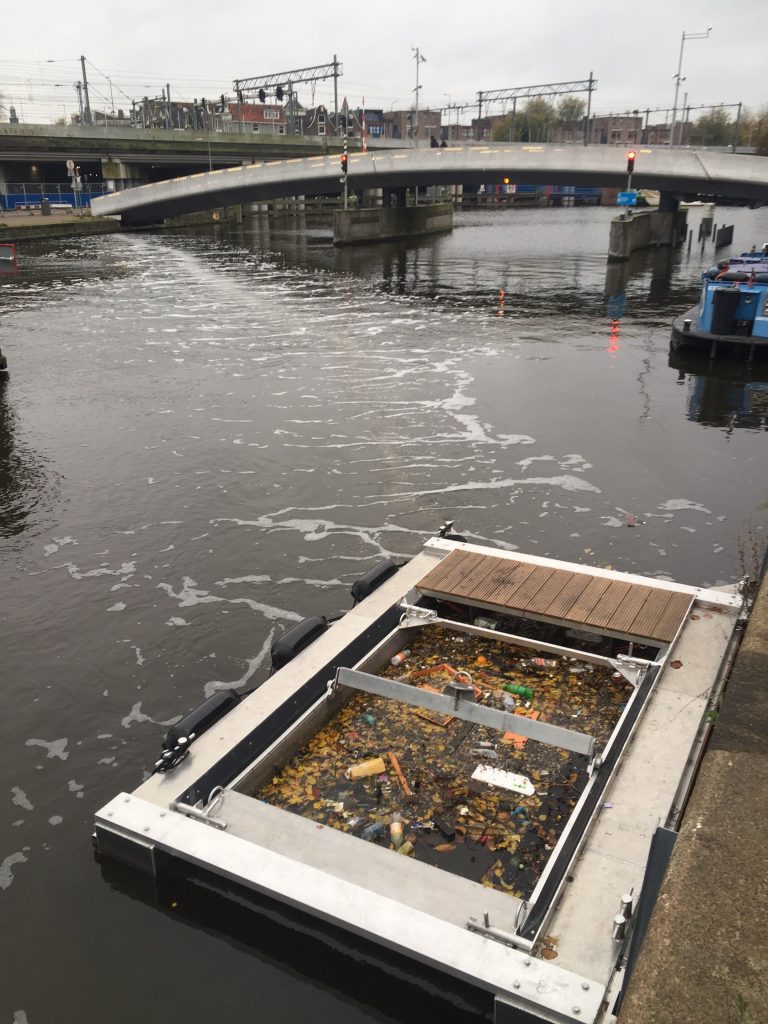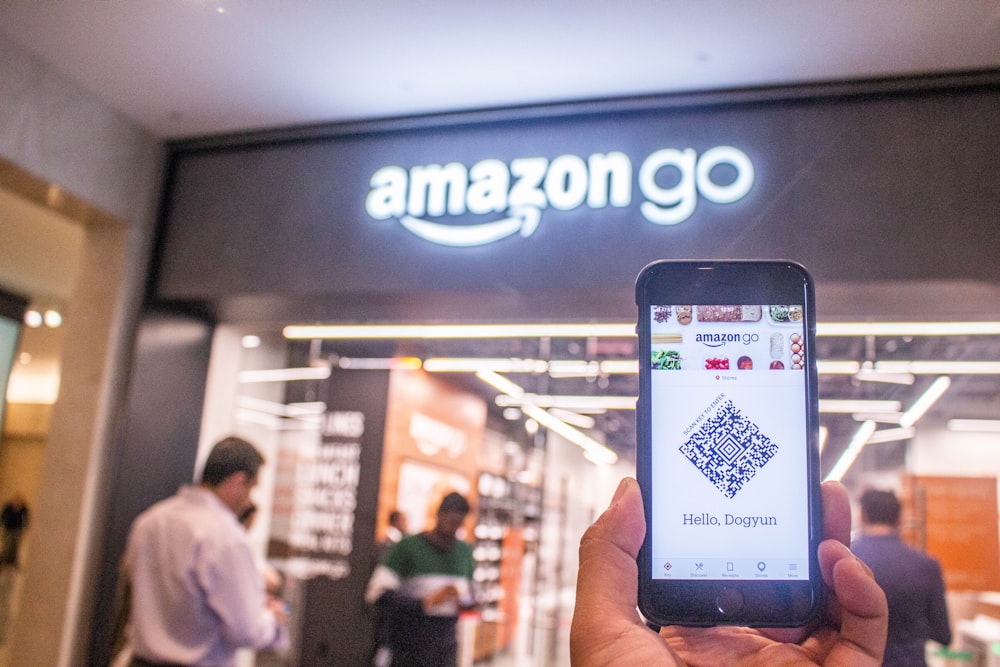Historic decision forces corporations to pay minimum of 15% tax globally
OECD countries and the G20 nations have been negotiating global tax justice for more than ten years. In 2021, 138 of the 141 countries agreed on a two-pillar reform; a minimum tax rate of 15% and a tax shift away from the place of production to the place where profits are made. The regulation will come into force in January 2024.
The basic idea is simple. If profits in tax havens are taxed at a higher rate, it pays less for companies to shift their profits there. This won’t only effect stereotypical tax havens such as the Caribbean islands, where there is often no corporation tax at all. Tax havens within the EU, such as Ireland with 12.5% corporation tax or Hungary with 9%, are also set to be hit.
“The principle of paying taxes where profits are generated is gaining acceptance and a common tax rate of 15 per cent puts a stop to destructive downward tax competition,” says Evelyn Regner. The MEP (Social Democratic Party of Austria) has been campaigning for fairer taxation of corporations at the European level for years.
Despite criticism that China and the USA are not on board, and that a global tax rate of 15% is too low, there has never been a comparable regulation before.
“For the first time in the history of taxation, states are being given the right to tax profits generated in other states according to agreed rules,” write tax experts Prof Dr Deborah Schanz and Dr Ulrike Schramm.
A MINIMUM TAX RATE OF 15 % COULD BRING IN AN ADDITIONAL 220 BILLION DOLLARS
The minimum tax rate will apply to all groups with an annual turnover of more than 750 million euros – regardless of whether the parent company or only one subsidiary is based in an EU member state. This affects around 7,000 to 8,000 companies worldwide and, according to OECD calculations, is likely to generate around 200 billion dollars in additional taxes.
For Austria, the tax office is expecting 100 million euros in additional revenue from 2026. According to economist and head of the tax department at the Vienna Chamber of Labour, Dominik Bernhofer, this could even amount to 200 to 300 million euros per year. In the long term, it could be even more, as there will be less profit shifting and tax competition. Together with his colleague Professor Matthias Petutschnig from the University of Vienna, Bernhofer looked at 19 of the largest Austrian companies. These include the cardboard group Mayr-Melnhof, banks such as Erste Bank and Raiffeisen, Vöst and Andritz. According to them, these 19 companies alone would have to pay a good 130 million euros more per year.
AUSTRIAN PEOPLE’S PARTY REPEATEDLY OPPOSED TRANSPARENCY DIRECTIVES AT EU LEVEL
Conservative and liberal governments in Europe have been resisting tighter taxes for corporations for years. The Irish government, for example, once declared that it did not want Apple to pay any back taxes, even though this would be necessary under EU law. Austria’s Austrian People’s Party (ÖVP) finance ministers are also taking part in the blockade games. Back in 2018, the then ÖVP Finance Minister Löger blocked tax disclosure by large corporations at EU level. His predecessor Schelling – also ÖVP – also blocked the EU’s planned financial reporting obligation for large corporations in 2016.
The Austrian parliament decided in 2019 that Austria should campaign for more transparency and tax disclosure, no matter who is finance minister in the future. Despite this decision, Austria abstained from another vote at EU level in 2021, once again preventing a push for greater tax transparency. The Finance Minister at the time was Gernot Blümel (ÖVP).
Dutch startup uses air bubbles to remove plastic from rivers
ARTICLE COURTESY OF… https://thebetter.news/the-great-bubble-barrier/Noah%20Dueker
Dutch startup “The Great Bubble Barrier” has been building “air curtains” and removing tons of plastic from rivers since 2017. The technology is simple and promising. With the help of pipes in the water, a curtain of air is formed. Fish and other river dwellers can swim through it, while plastic waste is intercepted.
The Amsterdam-based startup has been working on the technology behind the so-called “bubble barrier” for seven years. Initial pilot tests started in spring 2017, and the first filter system has been in place on the River IJssel in the Netherlands since November of the same year. Even tiny pieces of plastic with a diameter of one millimetre can be fished out of the water with it. The startup is currently testing whether even smaller plastic particles, i.e. less than 0.05 millimetres, can be filtered with the air barrier.
Simple technology, clean rivers, healthy people
The way the air barrier works is simple. Pipes at the bottom of a river or canal pump air into the water. Combined with the current, the plastic pollution is collected together on one bank. From there, the plastic goes into a collection system. Then the trash is separated and can be disposed of properly. The start-up’s invention would also be great outside the Netherlands, because Austria’s rivers are also full of trash.
The WWF reports that almost two-thirds of Austria’s waters need to be “cleaned up.” Only 15 percent are still in “very good” condition, the paper states. Reasons for the pollution include the heavy construction density of some regions, as well as the industrial usage – such as sewage disposal or cargo shipping – of rivers. Environment Minister Gewessler (Green Party) complained about the “littering of our environment and waters”, but the interim report of the “Action Plan Microplastics” is still pending.

Nearly 80 percent of plastic pollution in the sea comes from rivers
The technology from Holland not only holds promise for cleaning up freshwater streams, but also contributes to the cleaning of the oceans. Around 80 percent of plastic in the world’s seas comes from rivers. Currently, it is estimated that there are between 100 and 150 million tons of trash in the oceans. More than three-quarters of this is plastic. Every year, rivers wash between five and thirteen million tons more into the seas. Four million tons come from just ten major streams.
“We tested for six months in Amsterdam, and during this period we removed around 85 kilograms of plastic per month from the water,” say the founders of “The Great Bubble Barrier.
Projected over a year, that’s more than a ton of plastic waste. This is good not only for the environment, but also for people. Because the trash doesn’t just stay in the water. Fish and other sea creatures eat the plastic pollution. These then get back into the human organism via food, and there the – so called – microplastics can even lead to hormonal changes. Clean oceans, intact environment, healthier people – that seems to be the promise of the air curtain technology from the Netherlands.
70 young TikTok influencers demand: $30 per hour, 1 ½ hours break time and better wages for Amazon employees
ARTICLE COURTESY OF… https://scoop.me/tiktok-stars-amazon/
Image courtesy of.. unsplash.com
Solidarity with Amazon workers on TikTok: More than 70 young and influential TikTok influencers refuse to advertise for Amazon on their social media channels. They will not do so until Amazon drastically improves working conditions for employees. Furthermore they demand that the online giant stops their fight against unions.
Put people over (Amazon) Prime! Or shorter “People over Prime”- that is the name of the campaign that more than 70 creative TikTokers have launched together. They want to push the online giant Amazon to better working conditions for its employees.
Many young “influencers” have built up their own “business” in recent years with their social media channels. In addition to creative content, they also host paid advertisements. Among other things, they advertise products sold by the online retailer. But now more than 70 influencers published an open letter to Amazon, in which they massively criticize the company.
“DEAR AMAZON,
AMAZON’S WIDESPREAD MISTREATMENT OF THEIR WORKERS AND BLATANT USE OF UNION BUSTING TACTICS WILL NO LONGER BE TOLERATED BY THE TIKTOK COMMUNITY OR TIKTOK CREATORS. UNTIL THE FOLLOWING DEMANDS – SET BY THE AMAZON LABOR UNION FROM JFK8 AND LDJ5 WAREHOUSES – ARE MET, WE WILL REFUSE TO MONETIZE OUR PLATFORMS FOR AMAZON, INCLUDING ALL DIRECT AMAZON SPONSORSHIPS AND USAGE OF AMAZON’S STOREFRONT”, THE OPEN LETTER READS.
MORE BREAKS, BETTER WORKING CONDITIONS AND HIGHER WAGES DEMANDED
The TikTok collective is demanding better working conditions for Amazon employees. In only very few days 51 million people joined the collective in solidarity. Specifically, they want one-hour lunch breaks and two half-hour breaks spread throughout the workday. They are also demanding better sick leave options. In the U.S., where Amazon operates countless package stores, paid sick leave is sometimes not even an option. And they demand the elimination of the inhumane productivity rates by which Amazon fired employees for not achieving them.
UNIONS ARE BOOMING
In addition, the TikTok collective wants Amazon to immediately stop inciting its employees against unionization. The collective calls itself “Gen-Z for Change” and that’s exactly what they want: Change!
In April of this year, the first union in Amazon’s 28-year history was formed at a New York parcel centre – a breakthrough for Amazon employees there. What many people don’t know: Amazon used to send employees to mandatory “anti-union meetings”. There the raise sentiments about the perceived disadvantages of unions.
Furthermore, Amazon has threatened those employees with expulsion or lower pay if they advocate for the formation of a union. The more than 70 TikTokers no longer want to tolerate such practices:
“As long as no changes happen on the part of Amazon, we will stop Amazon from using one of the largest social media platforms in the world for marketing purposes,” the Influencers write.
Only when Amazon meets those requirements, the TikTok collective will make their social media channels available for Amazon advertisements.
Super-rich held accountable for water usage in drought stricken LA
ARTICLE COURTESY OF… https://scoop.me/la-drought-millionaires-restricted/
By..Harry Markham

As Los Angeles experiences a historic drought, local authorities are cracking down on excessive water usage by the super-rich. Those who refuse to stop using their swimming pools or watering their expansive gardens in the water deprived area are being threatened with the introduction of newly developed “flow restrictors”.
Los Angeles are encouraging residents to reduce water usage in response to a historic drought, but it seems that encouragement and a feeling of personal responsibility are not enough for some of the area’s richest residents.For ordinary residents, the threat of a financial penalty for overconsumption of water is enough to make them cut back. But for the rich who refuse to stop using their swimming pools, watering their expansive gardens, or turn off their fountains – many of whom are not worried by a relatively small fine—the city’s water department has a solution. They are now installing small metal disks known as “flow restrictors” to the water pipes of those who won’t cut down consumption by choice.
Water department find new solutions to water shortage
The flow restrictors, newly developed by a member of the water department, reduce the flow of water going to a property. After a restrictor is installed, it becomes impossible to water a lawn and difficult to use two water reliant devices at the same time. Mike McNutt, a spokesperson for Las Virgenes water district, said that:
“WE HAVE TAKEN A VERY FIRM POSITION ON BEING EQUAL. IT DOESN’T MATTER WHO YOU ARE, HOW MUCH MONEY YOU MAKE, HOW WELL-KNOWN YOU ARE: ALL OF YOU ARE BEING TREATED THE SAME”
Before the small disc is installed within the pipes of those considered to be among the worst offenders, they are given a chance to show how they are willing to reduce water usage without it. If no attempt is made to use a reasonable or justifiable amount of water, the restrictor goes in for two weeks. Those affected by the installation of a flow restrictor include celebrities Kevin Hart, Sylvester Stallone, and Kourtney Kardashian. No legal challenges have yet been pursued.
LA drought raises questions of equality
Few of the world’s nations display wealth inequality as starkly the USA. More billionaires call the states home than any other country, whilst around 40 million citizens live in poverty. This inequality is all encompassing, with disparities in access to housing, education, healthcare, food, and even water, with entire cities going without access to clean drinking water.

The imbalance in access to and use of water among different communities in the US becomes evermore apparent during times of drought. Droughts force affected people to take more personal responsibility for their water usage. For the average American, this often means taking shorter showers, not leaving the tap running, or using more efficient washing machine cycles. For the rich and super rich, this extends to not replacing swimming pool water or watering large gardens. In fact, 50 percent of all water used in Los Angeles is for outdoor irrigation, necessary to keep lawns luscious, plants alive, and water features running in the dry climate.
A 2015 study by the UCLA showed that:
“WEALTH WAS THE MOST RELIABLE PREDICTOR OF WATER USE. THE WEALTHY USED MORE THAN THREE TIMES THE WATER OF NONWEALTHY PEOPLE”
Billionaires won’t feel the bite of financial penalties
A 2022 report by the Suffolk County Water Authority in the state of New York shows even greater inequality. They found that multi-millionaires and billionaires use over one hundred times more water than the average homeowner in the New York area known as the Hamptons, where a historic water shortage is also being experienced.
One method used to reduce water usage is price hikes by those in control of the water supply, with the hope being that non-essential water usage is cut down to save money. This, however, is little incentive for the rich who have the disposable income to use. With many clearly not feeling the weight of responsibility for their fellow citizen, it is apparent that measures such as those being taken in LA are necessary to curtail the water usage of the rich during times of shortage.
Shorter working hours
ARTICLE COURTESY OF… https://scoop.me/usa-4-day-week/
After success stories from Iceland and news about the large-scale field trial in Great Britain, a pilot project on the 4-day week is now starting in the USA. 38 companies are testing the 4-day week while the results are being scientifically analysed. Last year, some companies already tested the effects of shorter working hours – and have ended up switching permanently to a 4-day week. Business Global News
They are on the rise in countries all around the world: the 4-day week and the 32-hour week. Some companies are testing shorter working hours to make themselves more attractive employers, others are already introducing them permanently. In countries like Iceland or Great Britain, there have been and still are large-scale field trials with thousands of participants. The aim is to investigate how working time reductions can be implemented and what the consequences are for employees, productivity and the working atmosphere.
The field trial in Iceland, which started in 2015, was so successful that 86% of Icelandic employees have now been given a reduction in working hours – or the opportunity to do so. The UK is now following and copying the Iceland trial on a larger scale, starting June 2022. In Belgium, on the other hand, the government has decided on the possibility of a 4-day week – albeit on the basis of condensed working hours. Here, the focus is laid on flexibility instead of an actual reduction of working hours.
US-Companies are also testing the 4-day week
Large companies have sporadically experimented with working hours in 2021, including Kickstarter, Bolt (a payment service provider), Unilever and others. According to CNBC, 38 companies in the USA and Canada are now testing their own 4-day work week pilot programme.

The non-profit organization “4 Day Week Global” launched a six-month pilot programme for the 4-day week in the US in April 2022, with several companies now participating. The pilot programme will end in September and then be evaluated.
How does the pilot programme for the 4-day week work in the USA & Canada?
Companies participating in the trials in the USA and Canada will be matched with a sponsor company that has already successfully switched to the 4-day week. This should facilitate the internal reorganisation of the company. At the same time, scientists from Boston College are analysing the effects of the reduction in working hours.
The pilot programme wants to show that people can work 80% of the standard weekly working hours and still achieve their work goals. And therefore should also earn 100% of their salary.
Newsweek magazine has published a list of companies implementing the 4-day week.
Studies from several countries: 4-day week increases health, well-being, and productivity
Juliet Schor, an economist and sociologist at Boston College, has been conducting studies on the 4-day week for years. She said:
“What we find with all the individual company cases that we’ve seen is that giving people a 4-day work week dramatically reduces their stress levels, their burnout, it improves their work-life balance. It improves their overall health and wellbeing … There are fewer sick days taken. There’s less absenteeism and personal days.”
Companies: 9 out of 10 employees are more satisfied
Data on the 4-day week is promising so far. Buffer, a social media company in Silicon Valley, tried the 4-day week during the Corona pandemic and found that 91% of employees were happier. 84% said they managed to complete the work they needed to do in 32 hours. They also reported being less stressed and happier, and felt they could manage their lives more independently.
Financial services’ company Bolt launched a trial of its own in autumn 2021. Founder Ryan Breslow commented:
After a three-month trial period, Bolt has made the reduction in working hours permanent. According to company management, the results speak for themselves:
- 86% of employees said they were more efficient while at work.
- 84% said their work-life balance had improved.
- 84% reported they were more productive than before.
- 80% said they have eliminated unnecessary work steps and deadlines – improving the whole work process.
Democrat has introduced bill for 32-hour workweek
Because these and other attempts have been so successful, Democratic Congressman Mark Takano of California introduced the “Thirty-Two-Hour Workweek Act” in Congress in July 2021.
There has not yet been a vote on the bill, which would reduce the state-approved workweek from 40 to 32 hours per week. But the bill shows that both politicians and entrepreneurs want to reshape the world of work in the United States. Business Global News.
https://iigrowrich.com/words-of-wisdom/


